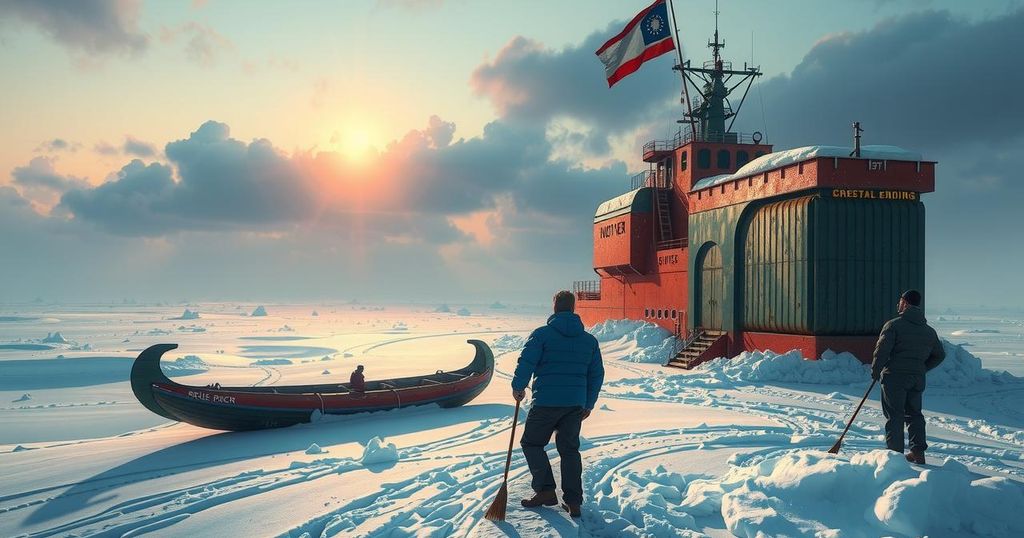Politics
AMUNDSEN - SCOTT SOUTH POLE STATION, BORIC, CHILE, CNN, DIPLOMACY, DIPLOMATIC RELATIONS, EUROPE, EUROPEAN UNION, GABRIEL BORIC, INTERNATIONAL RELATIONS, NEW ZEALAND, NORTH AMERICA, NORWAY, OCEANIA, SANTIAGO, SOUTH AMERICA, TELEVISIÓN NACIONAL DE CHILE, TELEVISION NACIONAL DE CHILE, TVN, UNITED STATES
Clara Montgomery
President Boric’s Historic Journey to Antarctica’s South Pole
President Gabriel Boric of Chile has made a historic visit to Antarctica’s South Pole, becoming the first Latin American leader to do so. This two-day trip, called Operation Pole Star III, aims to advance environmental monitoring on the continent. Accompanied by scientists and high-ranking officials, Boric emphasized Chile’s commitment to research in Antarctica while reaffirming sovereignty claims over the region.
On Friday, Chile’s President Gabriel Boric embarked on a historic journey to Antarctica’s South Pole, becoming the first Latin American leader to do so. The trip, titled Operation Pole Star III, underscores Chile’s commitment to expanding environmental monitoring and research in the region. He was accompanied by scientists and high-ranking officials, departing from the capital, Santiago, and making their way to Punta Arenas before ultimately reaching the Amundsen-Scott South Pole Station.
As one of seven nations holding a territorial claim in Antarctica, alongside Australia and the United Kingdom, Chile is also a signatory of the Antarctic Treaty, which promotes the continent for peaceful scientific endeavors. President Boric expressed he was honored by this unprecedented visit and emphasized its significance as a testament to Chile’s commitment to maintaining Antarctica as a continent devoted to science and peace. He remarked on the pride associated with Chile’s flag being one of the few represented there, stating, “From here everything is north: there are only 12 flags flying. One of them is the Chilean flag and that is a source of pride.”
President Boric’s visit signifies an intent to enhance Chile’s scientific presence and reaffirm its claims of sovereignty in the area. His remarks on social media during the trip further showcased the importance of this journey, emphasizing that it marks a milestone for the nation as well as for Latin America.
The significance of President Boric’s trip to Antarctica lies in its historical context. Chile is one of seven countries that have territorial claims on the continent, governed by the principles of the Antarctic Treaty, which limits activities to peaceful and scientific purposes. Chile has a long-standing history of scientific exploration in the northern sectors of Antarctica but is now focusing on broadening its research efforts across the continent’s western region. The current expedition is part of a broader initiative to monitor environmental changes, particularly pollutants, which is crucial in the context of global climate change.
In conclusion, President Gabriel Boric’s historic visit to the South Pole marks a significant milestone for both Chile and Latin America in terms of scientific exploration and territorial sovereignty in Antarctica. By leading a delegation focused on environmental monitoring, Boric underscores his administration’s commitment to preserving the continent for future generations. This journey not only elevates Chile’s presence in polar research but also reinforces its claims as a nation invested in the scientific and peaceful stewardship of one of the world’s last frontiers.
Original Source: www.cnn.com








Post Comment